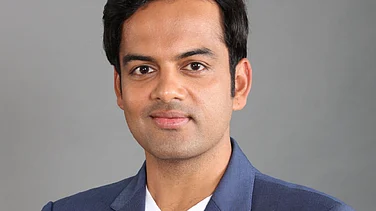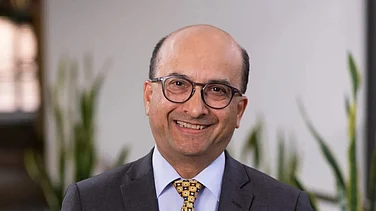Kerala received investment proposals worth ₹1.53-lakh crore during the two-day Invest Kerala global summit. Mathew Oommen, Group CEO of Reliance Jio, who was also present at the summit says in an exclusive interaction with Pushpita Dey that Jio is planning to provide 5G coverage to the population of Kerala.
Edited excerpts from the interview:
What are your investment plans for Kerala, and are there any competitive advantages in Kerala compared to other Indian states?
Jio has already invested over Rs 20,000 crore in Kerala. We have over 11,000 sites and cover the population of Kerala with 5G. Kerala's biggest potential is in deep-tech, meaning emerging technology, which is beyond basic AI and includes quantum computing, robotics and even AI global capability centres.
Each of these deep-tech capabilities requires extensive connectivity. To this end, Reliance is committed to building a cable-landing station in Kerala. The last time an international cable-landing system came to Kerala was in 2002. When the landing comes online, expected in the next 3-4 years, it will be the first new direct international connectivity landing in Kerala in 25 years. And this, we believe, is an essential component of Kerala's evolution to deep-tech and global reach.
It is important to note that Kerala's evolution to deep-tech is also not just about software programmers. It is about technology products and solution creation. The full ecosystem of AI, quantum and robotics is going to make Kerala a unique beacon for the rest of the world.
For Kerala, it cannot be just about positioning its value among different states. I sincerely believe we need to raise the bar. We are competing against not just states, but the rest of the world. The global AI opportunity has a potential impact of over $16trn through 2030. By 2027, in India alone, AI represents a $20bn opportunity. And Kerala has the potential to own a significant part of it.
What are your views on the progress made by the current government, particularly in areas impacting the tech and telecom sectors?
I am quite pleased with the policies of the present government under the leadership of Pinarayi Vijayan that are making it easier to do business in Kerala. Look at the start-up ecosystem, which today have over 6,000 startups. High-skilled manpower, ease of doing business, and the startup ecosystem are all going to fuel the next generation of deep-tech.
However, we should not just get carried away by the laurels of our past or the last three years, because that will hurt us. The world is accelerating much faster. We need to be two steps ahead in terms of the skillsets and capabilities that we build in order to address AI and quantum and all this emerging deep-tech.
Also Read: Kerala is Enabling Both [Public and Private] Sectors to Flourish, Says Pinarayi Vijayan
What changes are necessary to enhance the ease of doing business in Kerala?
Land, power, roadways—these are all basic infrastructure needing improvement within Kerala. From my view, from an outside-in view, affordable land and available land are big constraints (in Kerala). We are in a new world, a period of aggressive transformation. The methods of reform, slow and painful, that we did at one time are no longer applicable.
My only feedback is that the current land reforms need to be amended. I am hopeful that the government will look at it favourably and involve the existing landowners, plantation owners and everyone to be part of that solution. Getting them embedded into that new framework of opportunity to ensure it becomes, not only new progressive law and policy, but it also becomes an inclusive opportunity. Kerala needs to focus more on economic metrics now because it has its social metrics in place.
Also Read: We, Communists, are Working in a Capitalist System: Kerala Industry Minister, P. Rajeeve
What economic metrics should be prioritised, and how can we further enhance our focus on them?
There is no doubt that when it comes to social metrics, such as literacy, life expectancy and poverty alleviation, Kerala is doing very well.
In terms of economic metrics, we need to identify and develop certain industries that are of national priority. This will get attention and help from all quarters. I have heard just even today the question of how to get money from the Central Finance Commission. I think we heard very categorically from [Union Minister of Commerce] Piyush Goyal of his intent to support. And the present government under our PM is absolutely willing to support Kerala’s efforts, and while they are willing to support, as Kerala, we need to drive the relevant programmes and initiatives that will get the right attention.
India has an AI mission. Kerala should establish an equivalent Kerala AI mission so that it creates industries that align with the national priority as well. So, it is not the HDI [Human Development Index] factor that is used for appropriation of funds, but it is the creation of national priority industries that brings in the right funds. And I could tell from Goyal's perspective today; the central ministry is quite willing to support Kerala in this effort.




























